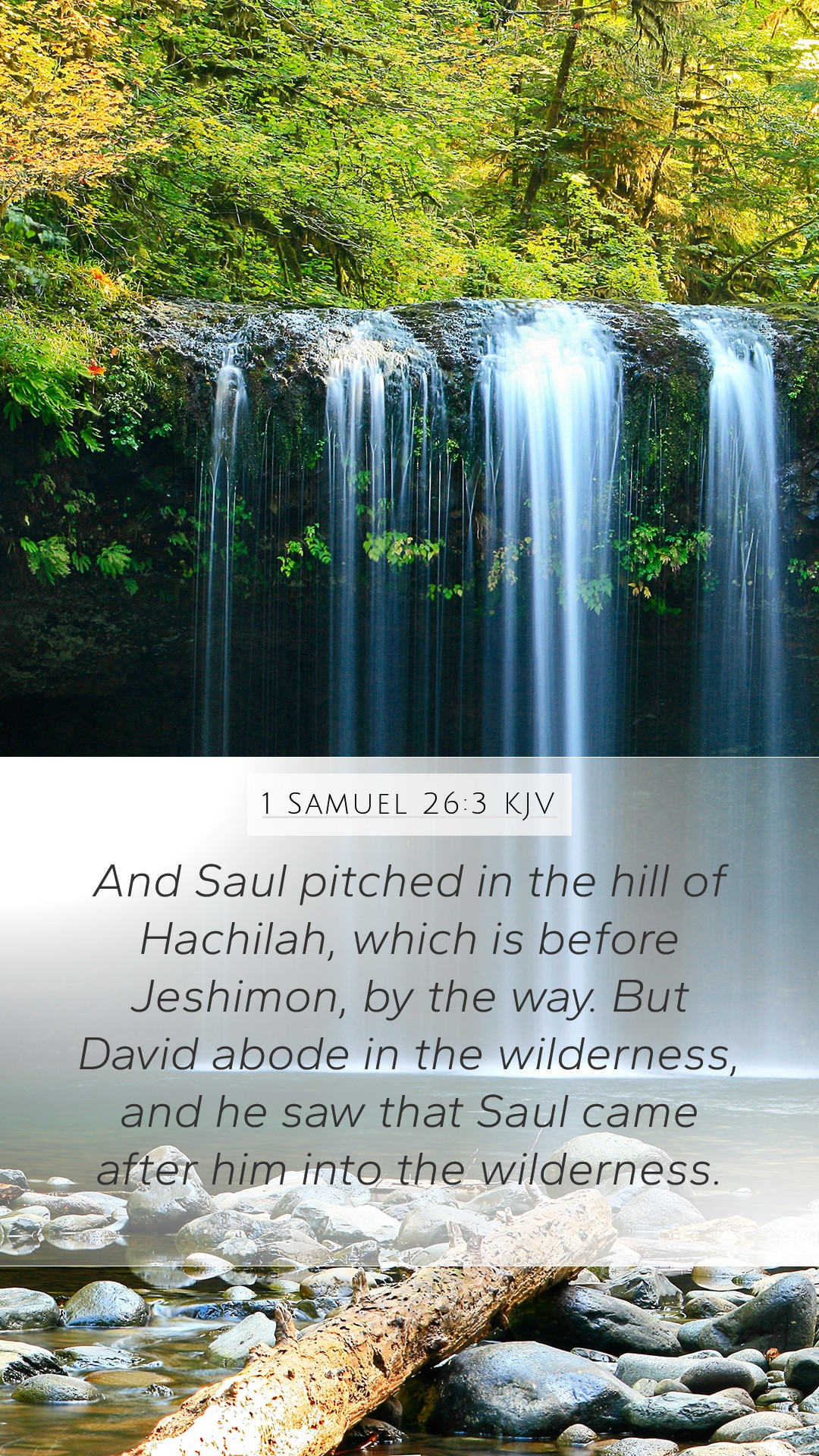Bible Verse Meaning: 1 Samuel 26:3
Verse Reference: 1 Samuel 26:3
Verse Text: "And Saul pitched in the hill of Hachilah, which is before Jeshimon, and Abner the son of Ner, the captain of his host, and Saul lay in the trench, and the people pitched around about him."
Understanding 1 Samuel 26:3
This verse provides a vivid scene of King Saul encamped with his army, revealing much about the circumstances surrounding David’s rise to kingship, as well as the conflict between them.
Summary and Insights from Public Domain Commentaries
-
Matthew Henry’s Commentary:
Henry highlights that this passage illustrates the relentless pursuit of David by Saul. Saul camps in a strategic location, showing his determination and leadership qualities. The hill of Hachilah signifies the mounting tension and deepening conflict between the king and David. Despite Saul's power, God's favor rested upon David, foreshadowing the eventual transfer of leadership.
-
Albert Barnes’ Notes:
Barnes emphasizes the physical setting of Saul's camp, which serves as a backdrop for David's subsequent actions. The mention of Abner, Saul's military commander, indicates a well-organized army but also reflects David's marginalized status. This situation presents an opportunity for David that challenges the established order but also tests his moral integrity and faith in God.
-
Adam Clarke’s Commentary:
Clarke elaborates on the significance of the location and the strategic implications of Saul’s camp layout. The "trench" indicates a type of fortification, emphasizing Saul's paranoia regarding David's intentions. This also signifies the natural tensions present in leadership and the human desire for safety amidst perceived threats. Clarke notes that this verse sets the stage for discussing the themes of loyalty, betrayal, and divine providence essential in the narrative of Samuel.
Biblical Exegesis of 1 Samuel 26:3
In dissecting this verse, we recognize the multi-layered dynamics at play: the physical, the political, and the spiritual. The verse illustrates a critical moment in biblical history where the struggle for power intersects with divine will.
Key Themes:
- The Nature of Leadership: Saul's encampment reflects his authority but also highlights his failure to unify the nation under God's covenant.
- Divine Favor: David’s situation contrasts sharply with Saul's, indicating the preference of God for a leader after His own heart (1 Samuel 13:14).
- Moral Dilemmas: David is faced with the decision of how to respond to Saul’s threats, emphasizing themes of mercy and justice throughout their encounters.
Application of 1 Samuel 26:3 in Daily Life
This passage invites believers to reflect on their own lives in terms of leadership and rivalry. It encourages them to consider how they respond to conflict, the moral choices they make when challenged, and their reliance on divine guidance in difficult times.
Cross References:
- 1 Samuel 24:1-22 - David spares Saul's life.
- 1 Samuel 25:1 - The death of Samuel and the implications for Saul and David.
- 2 Samuel 1:1-16 - The aftermath of Saul's death and its impact on David's rise.
Conclusion
1 Samuel 26:3 provides insight into a critical moment in biblical history, revealing themes of power, conflict, and God's sovereignty. Engaging with this scripture encourages deeper understanding of both the narrative of David and Saul and the broader implications for our lives today.
This interpretation is intended for those seeking bible verse meanings, bible verse interpretations, and bible verse explanations. It is suitable for use in bible study groups, online bible study, and for individuals seeking to deepen their understanding of scripture analysis and biblical exegesis.


